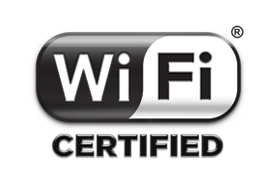New Wi-Fi standard to support wireless Ultra HD delivery in home
The professional video industry's #1 source for news, trends and product and tech information. Sign up below.
You are now subscribed
Your newsletter sign-up was successful
The Wi-Fi industry took an important step last week laying the groundwork that one day will lead to the technology necessary for consumers to deliver wireless home coverage that will support delivery of Ultra HD and 4K video as well as other demanding applications.
The Wi-Fi Alliance announced June 19 the launch of its Wi-Fi CERTIFIED ac certification program, which will support development of home wireless networking operating in the 5GHz band, where devices can make use of increased bandwidth to achieve a higher data rate.

The certification program is based on technology defined in the IEEE 802.11ac standard. Benefits of Wi-Fi CERTIFIED ac include higher data rates, greater capacity and lower latency.
According to the alliance, networks based on Wi-Fi CERTIFIED ac can deliver data rates up to twice of those available with Wi-Fi CERTIFIED n networks. This high data rate means wireless networks can stream multiple HD-quality video to several devices. New Wi-Fi CERTIFIED ac networks also will allow more devices to be connected to the network without degrading performance.
The alliance says it expects most Wi-Fi CERTIFIED ac products be dual-band, operating in both the 2.4GHz and 5GHz bands, and to support Wi-Fi CERTIFIED n in the 2.4GHz frequency band. Dual-band networks double capacity, because devices can use the less crowded 5GHz band for high-performance applications and the 2.4 GHz band for basic needs.
In announcing the certification program, the Wi-Fi Alliance also released findings of recent research conducted by Wakefield Research for the alliance. The research found the role Wi-Fi technology plays today in delivery of media to consumers in the home is strong and growing. According to the survey, 60 percent of respondents in the United States use Wi-Fi for multimedia applications more now than three years. Among those 18 to 24 years of age, Wi-Fi is more essential than traditional forms of entertainment. Fully 69 percent of this age group said a Wi-Fi outage would be more disruptive than a TV outage in their homes.
The professional video industry's #1 source for news, trends and product and tech information. Sign up below.
